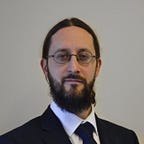Interview with Dr Helen I. Ackers
Interviews with academic advisors at Woolf.
Dr Helen I. Ackers is a Teaching Fellow in Classical Visual Culture at the University of Warwick. She is a Classical Archaeologist whose research is focused on the art and material culture of the Ancient World.
Helen, you were trained as a Classical Archeologist at the University of Oxford, with a focus on the art and material culture of the Ancient World. Could you tell us more about your recent research work?
My research to date has been particularly concerned with portraiture in antiquity. This is reflected by my DPhil thesis which I am currently developing into a monograph: Gender, Image and Society: Roman women’s portrait busts in the third century AD. This study contributes to three important veins of scholarly endeavour: third century Roman material culture, gender studies on Roman women and art historical studies of the bust format. By focusing on women’s portraits in what is traditionally characterized as a hyper-masculine, militaristic era, this study contributes to a revision of the third century and asserts the significance of Roman women and the virtues associated with them in this period.
Building upon this research I am also interested in the societal function of women’s portraits and what their attributes, hairstyles, gestures and formats can tell us about Roman conceptions of feminine identity. For example, I have done work on the representation of hairpieces and wigs in Roman women’s portraiture. More broadly, much of my current research is concerned with how portraits were used to express local identity at the peripheries of empire, and how, in turn, this informed ‘global’ conceptions of Roman identity. Finally, my research on the bust-format has resulted in related research interest in the collection and reception of Roman art and culture post-Antiquity.
You have extensive experience teaching at both the University of Oxford and the University of Warwick. What is your view on tutorial teaching? Is it still a relevant form of pedagogy, and if so, why?
I have found tutorial teaching extremely effective, both in terms of my own education and my experience of conducting tutorials in Oxford. Tutorials provide a fantastic opportunity for the student to explore and interrogate an issue while being carefully guided by an expert in the field. In this way the student learns to think freely and to develop their own opinions. I have found that through questioning a student, rather than straightforwardly presenting them with ‘answers’, they formulate far more interesting arguments and gain a much deeper understanding of a topic. In this way students are taught not only to retain information but to truly think: to question why they have drawn their conclusions and to evaluate and weigh arguments. This process overwhelming results in more nuanced and intellectually mature arguments. Finally, large classroom sizes can make it difficult for students to be able to get to know and interact with academics; tutorials provide an antidote to student anonymity and isolation.
What are the greatest challenges now facing institutions of higher learning? How do you see the Woolf project addressing these challenges?
I think that two of the biggest challenges currently facing institutions of higher learning are how to keep education accessible and affordable, and how to innovate to fulfil the demands of a truly global higher education market. The former has been exacerbated not only by increasing student fees, but also raising living costs in many countries. Students consequently are hit not only by the cost of their education, but also the expense of relocating to study. In this respect I think the Woolf project provides some excellent solutions. Woolf courses will provide high value for money education, cutting out the administration and infrastructural costs of conventional universities, while allowing students to study in a flexible way from anywhere in the world.
This leads on to the second challenge: how to fulfil the needs of an international market. Most universities now recruit students from all over the world. This provides a fantastic opportunity to bring together students from a large range of backgrounds and cultural contexts. However, raising student numbers can result in large classes and deny students vital access to the academics who are teaching them. Further, this international market has resulted in a growth in online courses which allow universities to recruit large numbers of international students. However, one of the disappointments of this approach is that many of these online courses do little to combat student anonymity. They provide material and assessments but effectively remove the academic-student relationship. The Woolf project is truly innovative in this respect. Woolf will provide a vital platform through which students from all over the world can study and learn. Further, by structuring courses around tutorials, students will gain incredible one-to-one access with experts in their fields. In this way online education becomes personal, academically rigorous and bespoke.
For more details about Dr Helen I. Ackers’ research, see here.
For more details on the Woolf project, check out our website. Stay tuned for interviews of other Woolf advisors!
